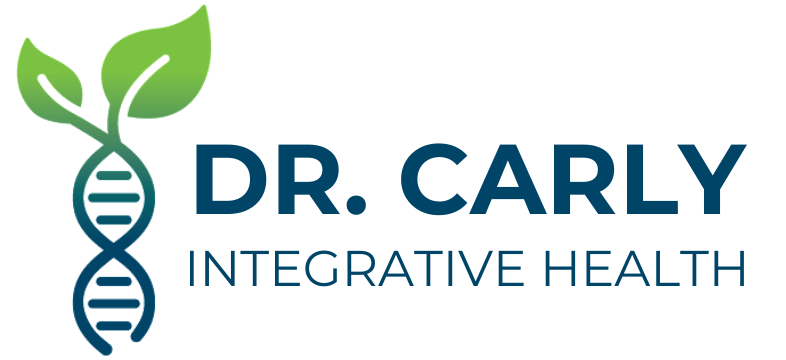Endotoxin, Autoimmune Disease, and Alkaline Phosphatase
Maybe you have heard that your gut health may be contributing to autoimmune disease. Maybe you have even heard that your gut bacteria influence your immune system. But how? To answer that, we have to talk about endotoxin.
What is endotoxin?
Endotoxin, also known as lipopolysaccharide (LPS), is a part of the cell wall of gram-negative bacteria. The bacteria release small amounts of LPS during growth, but when the bacterial cell disintegrates, it dumps LPS into its surroundings.
LPS causes a cascade of inflammation in various ways. It causes the production of inflammatory molecules called cytokines, including IL-1, IL-6, IL-8, TNF, and platelet-activating factor. These inflammatory molecules activate and mobilize the immune system causing inflammation that damages the body. They also trigger coagulation of the blood and the production of antibodies.
Many of these inflammatory molecules are linked to autoimmune disease, including Hashimoto's, celiac disease, and IBD.
LPS and Gut Bacteria
LPS are a normal part of gram-negative bacteria. And gram-negative bacteria are normally present in our digestive tract. These bacteria are considered opportunistic, meaning that if they are in balance with the other bacteria in the gut, they do not cause harm. But when there are imbalances in the gut bacteria, these gram-negative can become pathogenic and cause symptoms and illness.
LPS and Alkaline Phosphatase
Alkaline phosphatase (ALP) is an enzyme in our bodies that detoxifies LPS. ALP is anti-inflammatory and is an important part of how we coexist with the bacteria in our digestive tract. When we do not have enough ALP, we cannot detoxify LPS and this leads to inflammation.
Lab Testing
When it comes to LPS and ALP, you need to determine if the issue is excess LPS, deficient ALP, or both. The following testing can provide answers:
Stool testing via 16S rRNA sequencing to determine abundance of gram-negative bacteria
ALP to directly measure enzyme levels
LPS levels in the blood are not available as testing outside of research currently. Some labs measure antibodies to LPS but this has not been validated to correlate with LPS levels. It is thought to be indicative of an impaired gut barrier (leaky gut) but that also has not been validated.
Causes of Low ALP
Low ALP is primarily associated with nutritional deficiencies that include B6, B12, C, K, folic acid, calcium, phosphorous, zinc and protein. Zinc is probably the most common nutritional deficiency causing low ALP.
Also, phytates found in legumes and grains reduce ALP activity. Fasting, fat-free diets, low-protein diets and unsaturated fats are all associated with reduced ALP activity.
How to Increase ALP Activity
Address nutrient deficiencies
Get more short-chain fatty acids such as butryate
Eat more ginger and black pepper (piperine)
Try a grain free diet
How to Decrease LPS
Addressing imbalances in gut bacteria may be a simple fix or require more complex treatment. If the bacteria have overgrown into the small intestine (called SIBO), this will require more complicated treatment and may take longer to resolve.
Addressing LPS producing species in the large intestine can be relatively simple if you do the right testing. If you know exactly which genus or species are overgrown, you can do a targeted treatment for quick results. A one-size fits all approach rarely works.
Depending on the bacteria present, treatment may involve:
antimicrobial herbs such as garlic or oregon grape root to kill bacteria
specific dietary changes to starve bacteria
targeted use of prebiotics to enhance growth of beneficial species to crowd out the LPS producing species
Probiotics can help but they can also hinder. Some probiotic strains enhance the growth of LPS producing species while others do not. When it comes to balancing gut bacteria, I rarely use probiotics, but when I do, I make sure they are compatible with the individuals gut bacteria and the changes we are trying to make. I focus on using prebiotics to enhance the resident beneficial species, which yields better and longer lasting results than probiotics in my experience.
If you want to effectively balance your gut microbiome, I recommend working with a knowledgeable and experienced doctor. If your doctor only offers a generic multi-strain probiotic to address the gut microbiome, then you may want to seek a doctor with more training.
References
Feehley T, Belda-Ferre P, Nagler CR. What’s LPS Got to Do with It? A Role for Gut LPS Variants in Driving Autoimmune and Allergic Disease. Cell Host & Microbe. 2016;19(5):572-574. doi:10.1016/j.chom.2016.04.025
Lallès JP. Intestinal alkaline phosphatase: multiple biological roles in maintenance of intestinal homeostasis and modulation by diet. Nutr Rev. 2010 Jun;68(6):323-32. doi: 10.1111/j.1753-4887.2010.00292.x. PMID: 20536777.
Cui L, Takagi Y, Nezu R, et al. Prolonged zinc-deficient diet alters alkaline phosphatase and disaccharidase activities and induces morphological changes in the intestine of rats. The Journal of Trace Elements in Experimental Medicine. 1996;8(4):249-261. doi:10.1002/(SICI)1520-670X(199605)8:4<249::AID-JTRA7>3.0.CO;2-H


